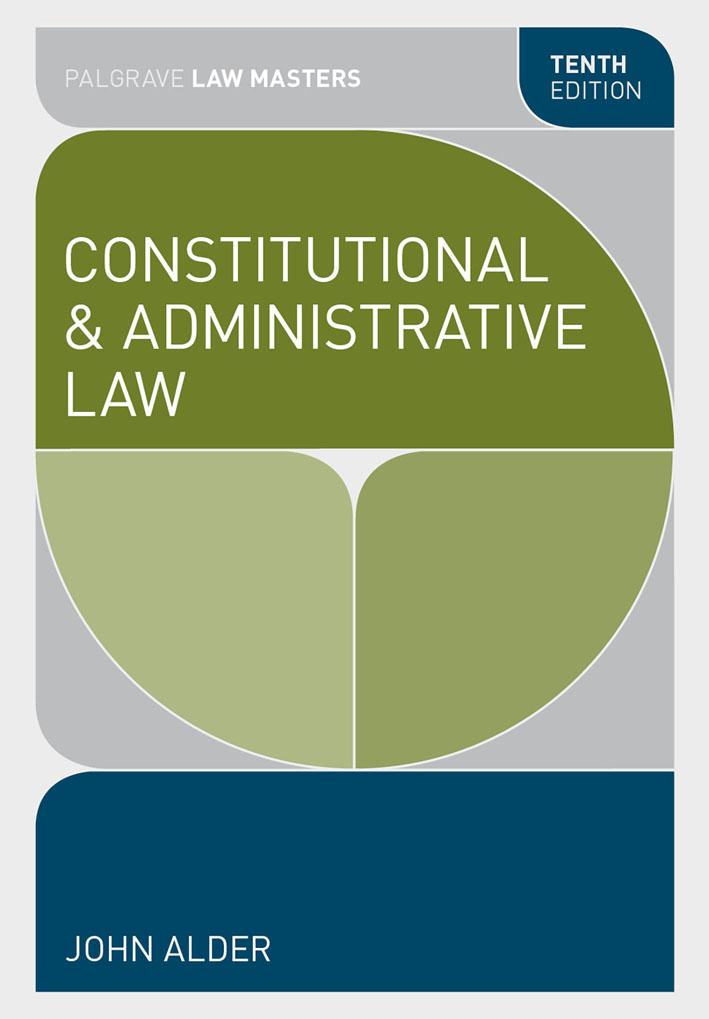Constitutional and Administrative Law by John Alder

Author:John Alder
Language: eng
Format: epub, pdf
Publisher: Palgrave Macmillan Ltd.
13.2 The Speaker of the Commons
The office of Speaker, ‘the first commoner’, symbolises the historical development of the House of Commons. The Speaker presides over meetings of the Commons and is the intermediary between the House and the Crown. Originally the Speaker was a Crown servant but since the seventeenth century has asserted independence from the Crown. When Charles I entered the chamber to arrest the Five Members (1642), Speaker Lenthall replied: ‘I have neither eyes to see nor tongue to speak in this place but as the House is pleased to direct me, whose servant I am here.’ Thus the Speaker represents the rights of the House against the Crown.
Since the nineteenth century it has become established that the Speaker is independent of party, cannot hold ministerial office and takes no part in debate. The Speaker is required to be impartial between the political parties. The Speaker controls the procedure, keeps order and is responsible for protecting the rights of all groups within the House, particularly those of minorities. He or she has considerable discretion. The Speaker makes procedural rulings, decides who shall speak and has summary powers to suspend members or terminate a sitting. In terms of the conduct of particular proceedings, the Speaker need not normally give reasons for decisions. The Sergeant at Arms is the enforcement agency responsible to the Speaker. There is also a Deputy Speaker and deputies to him or her. One of these presides when the whole House is sitting as a committee, as it does in relation to financial matters (Section 13.4).
The Speaker is elected by secret ballot from among its members by the House at the beginning of each Parliament. An absolute majority of over 50 per cent must be obtained; the ‘Father of the House’, the longest-serving member, runs the election. Traditionally a newly elected Speaker has to be dragged to the chair, a reminder that this was once a dangerous post. The Speaker can be removed by the House. There has been no removal of a Speaker since 1695 (Sir John Trevor for corruption), but in 2009 Speaker Martin resigned amid allegations that his conduct was overprotective to MPs accused of excessive expense claims.
Download
Constitutional and Administrative Law by John Alder.pdf
This site does not store any files on its server. We only index and link to content provided by other sites. Please contact the content providers to delete copyright contents if any and email us, we'll remove relevant links or contents immediately.
Conversations with RBG by Jeffrey Rosen(751)
Genetics by Unknown(739)
The Tyranny of Good Intentions by Paul Craig Roberts(672)
Journalism by Michael Schudson(587)
Critical Race Theory by Richard Delgado & Jean Stefancic & Angela Harris(547)
Losing the News by Jones Alex(544)
The Permission Society by Timothy Sandefur(522)
Talking Back to the Indian Act by Mary-Ellen Kelm(517)
Active Liberty by Stephen Breyer(517)
Supreme Power by Ted Stewart(515)
American Studies by Deloria Philip J(506)
The Jury in America by Dennis Hale(502)
The Federalist papers by Alexander Hamilton; James Madison; John Jay; Lawrence Goldman(500)
Information Privacy Law by Daniel J. Solove Paul M. Schwartz(489)
A Case for the American People by Norman Eisen(482)
The Conscience of the Constitution: The Declaration of Independence and the Right to Liberty Hardcover by Timothy Sandefur(479)
We the People by Sachs Albie(469)
The Constitutional Convention by James Madison(465)
Supreme Inequality by Adam Cohen(463)
